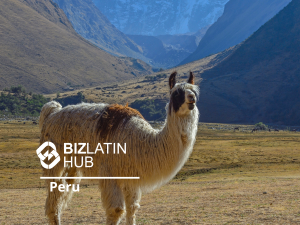Brazil – the most biodiverse nation on the planet. Mexico – the biggest trading partner of the world’s largest economy. Chile – a true poster country for sustainable development and renewable energy in a world that desperately needs them. Argentina – ranking 6th worldwide in the USDA 2017 Agricultural outlook forum of Food-Producing Countries. Together, the 4 economies account for over 5% of Global GDP, and Latin America is home to them all. In no small part down to their abundance of resources, biodiversity and richness in climate, the region is understandably a standout player in both agriculture and global business on a wider scale.

On the other hand, we have Australia, a nation regarded to be one of the most highly developed in the world according to the Human Development Index. Powered by an extremely well-educated population, Australia has placed itself in a position to flourish on the world stage, boasting impressive yearly economic statistics and quality of living. Where these two nations can meet, once again, is through a mutual friend of them both: agriculture.
Latin American Agriculture as it stands
Currently, Latin America is responsible for around 16% of all (non-technological) agricultural exports worldwide. Considering the region is only responsible for around 7% of World GDP, a 16% share of agricultural exports is an impressive statistic to hold on a global scale. Placed into context though, this is not such an alarming fact once you consider, for example, the origin of most bananas in the wider world. There is a 4 in 5 chance that a banana bought today outside of its origin country was grown in Latin America, most likely in Ecuador, Colombia or the Dominican Republic. In fact, the region’s large share of agriculture becomes more clear once you note that not only 80% of the world’s bananas, but close to 60% of coffee, 30% of meat and 36% of soya are also produced in Latin America.
On a wider economic scale, Latin America is starting to see significant investment in renewable energies, and the overall movement towards sustainability will likely flood into the region’s agriculture over the coming years. The biggest, age-old problem affecting the area’s agriculture is a lack of necessary investment in infrastructure. From appropriate, time-efficient transport systems to environmentally-friendly farming technology, Latin American agriculture’s long-term infrastructure necessities have often been compromised by its politicians’ short-term objectives.
These shortfalls have opened doors to foreign investment in the various jurisdictions that make up Latin America.
Australia’s Big Place in Latin America
Far from new to one another, Australia and Latin America are accustomed to doing business together – exemplified by Australia’s long-standing free trade agreement with Chile and the more recent PAFTA agreement with Peru. Historically, mining has been Australia’s big interest in Latin America – with Chile, Mexico, and Colombia holding most attention – however, with reason, agriculture is an area of much current appeal to Australian business.

Due to the similarity in climates, the agrarian sectors in the two regions well attuned; there are already large similarities in production activities, and the almost parallel standards for wine and meat production are easy examples to consider. On a bigger scale, though, this leaves Australia – a nation of exceptional ability where technology and infrastructural projects are concerned – with a massive opportunity to ‘fill the gap’ of necessary investment in Latin America. An unfortunate circumstance for thousands of already poor farmers is that they lack the resources to improve efficiency in their production – Australian investment in could quite easily improve the process for such farmers.
Interestingly too, the opportunities lie within aiding both the primary and tertiary sectors. Potato farmers in Peru experienced significant increases in the value of their stocks in recent years due to the development of more tertiary uses for potatoes in Peru. Therefore, a potential opportunity for Australian firms is that primary producers in Latin America need ways to keep their supply consistent and of as high a value and diversity as possible – tertiary business is a great answer for such a problem. If this tells us anything, it’s that there are clear mutual benefits for all involved parties.
What Does the Past Tell Us?
What makes exploration of this future potential so enticing is that Australian interest in Latin America has long existed – and has been very fruitful, to say the least. In 2015, 28% of global mining spending was geared towards Latin American mines, which isn’t surprising considering the last two decades have seen 50% of silver, 21% of zinc and 20% of gold worldwide emerge from Latin American mines. Two of the world’s biggest players – Rio Tinto & BHP – are headquartered in Australia and both carry out much of their operations in the region across the South Pacific.
Besides mining, another mutual trade sector set to thrive is the Coffee industry. Led by Brazil and Colombia, Latin America is the largest global coffee producer, exporting the vast majority of the domestically produced commodity. Peru – a member of the region’s whose coffee is widely regarded to be of extremely rich quality – as mentioned, have also agreed on more free trade with Australia in the years to come. With revenue in the Australian café industry set to reach AUD$8 billion across 2018 with imports set to reach 1.9 million bags by the end of 2019, it’s likely the Australian demand for coffee – Peruvian and not, will pick up.
In line with their historic trade relationship, the recent PAFTA agreement seems to be a clear indicator of Australia’s continued interest in the region, and it would only make sense for agribusiness to be one of those interests given the present niche available.
An Exciting Future
Despite already thriving where agriculture is concerned, the region south of the US is still very much in need of wide-scale investment in order to encourage its full potential. As can be seen through its involvement in several trading blocs and laws signaling relative openness to foreign business, Latin America is clearly open to the investment and expertise it could benefit from. Given their competitive advantage in knowledge of agribusiness, Australia would seemingly be missing an incredible, potentially once in a generation, opportunity by not taking their knowledge to Latin American markets.
If you have any questions regarding Australian or Latin American business, please do not hesitate to contact us now.





